The coach who has won eight World Titles with Carlsen and Anand - Peter Heine Nielsen
Winner of eight world titles, a strong grandmaster, and the second of both Magnus and Vishy, Peter Heine Nielsen is a name that is not unknown in the chess world. While chess is a hard game, it is almost impossible to fathom what it’s like at the very top. The training these world champions go through and how they work is something that seems to be a mystery to a common person or an amateur player. The world of top grandmasters seems like a distant galaxy that is hard to reach. In this interview, we sat with one such person who has been closely involved in that world for many years now. We had a conversation with Peter Heine and discussed everything ranging from his role as a second to both Magnus and Vishy, the differences that the onset of AI has brought to the chess world, the coming generation, the future of chess, and more.
What it is like to be a coach or a second to a top-level GM
The role of a coach or a second differs a lot as a person moves from a lower rating to a higher one. Chess is an individual sport, unlike football or any other game. Thus, their role varies in both. For example, in football, there is a coach who oversees a team; he must get them to work together, and he is the one making the decisions and telling people what to do. However, in individual sports like chess, the role of a second or a coach more depends on the ideas of the grandmaster, and it's more about bringing to life the ideas of that individual being.
When asked about this, Peter says, "It’s clear that when you work for a genius like Vishy Anand or Magnus Carlsen, they are the best players in the world for a reason. That is perhaps why we use the term the second rather than coach. It is someone who helps them implement what they would like to do, rather than you tell them what to do."
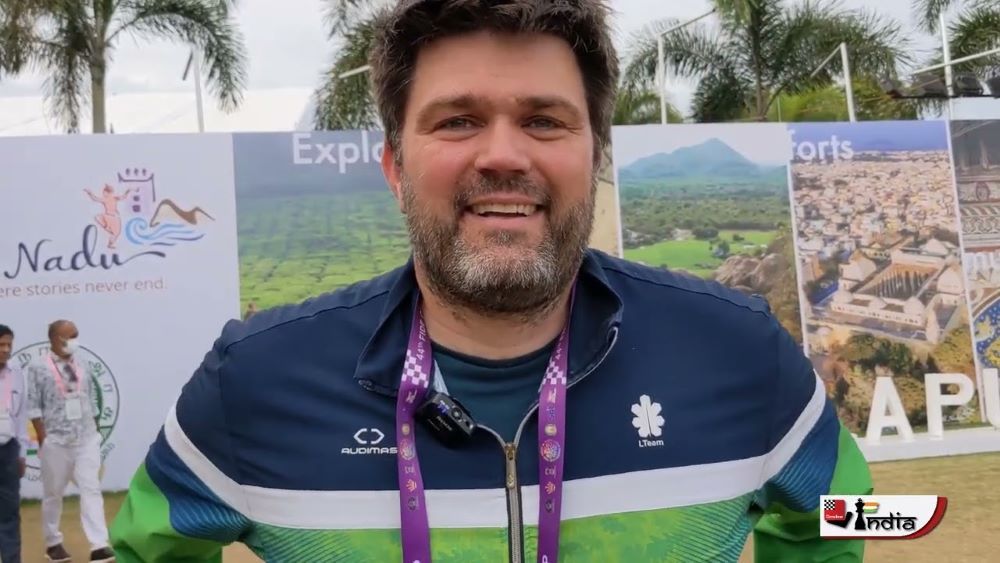
Often times, the world of top-level grandmasters seems impenetrable. What is it like to be on a team with a top-level GM, who, let’s say, is training for the world championship?
Peter explains to us beautifully that it mostly differs from person to person, but the basic idea is to help the grandmaster bring to life his vision of what he would like to explore or play in the game. With Vishy, Peter's role was to implement the ideas that Vishy put forth, plan strategies, and do a lot of computer work.
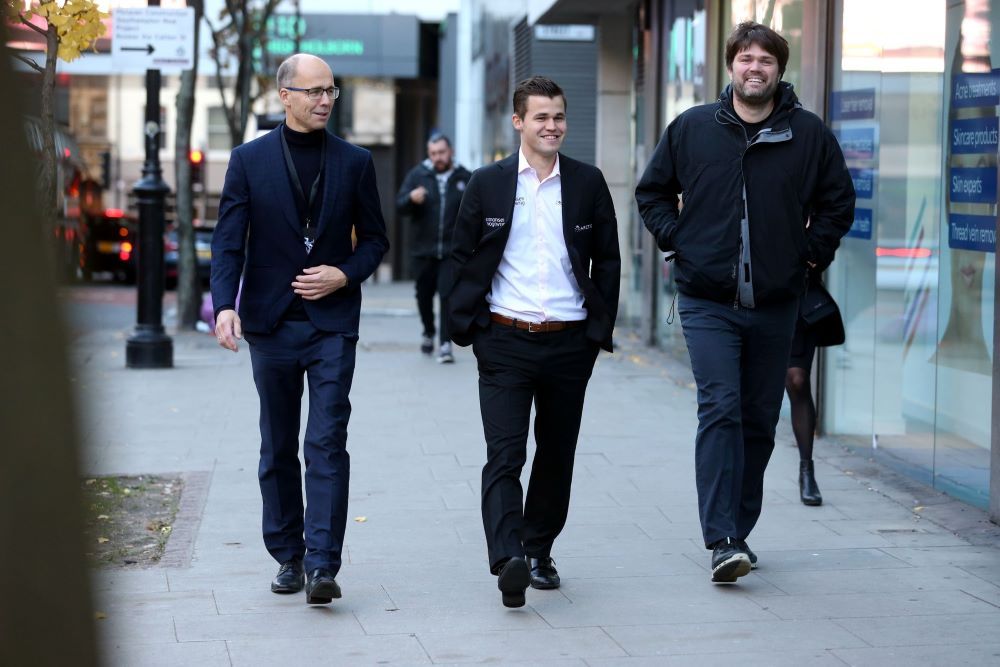
How different and similar was the experience while working with Vishy and Magnus?
While the rivalry between these two genius world champions goes back, Peter has worked with both. However, not every person is the same; they have different strategies, ideas, and ways of working. We were curious about how different was his working experience with Vishy and Magnus, and Peter described it as:
"Of course, with Magnus, it was slightly different. Well, Vishy was the oldest of our group; he was the most experienced. What we could really help with was a lot of work. With Magnus, my work was technically the same, but it differed in that I was quite older than him and had a lot of experience working with Vishy. So, I could probably bring some experience to him while he had the youth, energy, and skills. Therefore, that created a somewhat different dynamic than I had with Vishy, but at the core of it, it is the same: we help implement strategies that these geniuses decided.
For the people who are not that involved in the game or are not practising at the top level, it is difficult for them to understand what exactly a team does during an important match, let's say a world championship.
During important matches such as world championships, the team has like half a year to prepare for the match, and in that period, they come up with a strategy, prepare the game, and so on. However, it is important to notice that the other team is doing the exact same thing. So, during a match, there is a clash between the strategies, and the team must quickly counter that somehow.
The beauty of all of this is the way people come together to help a player win a particular game. The team of a world champion usually has a team of four grandmasters who stay up all night strategizing and analysing positions, getting input from important people, and helping the person visualise their goal.
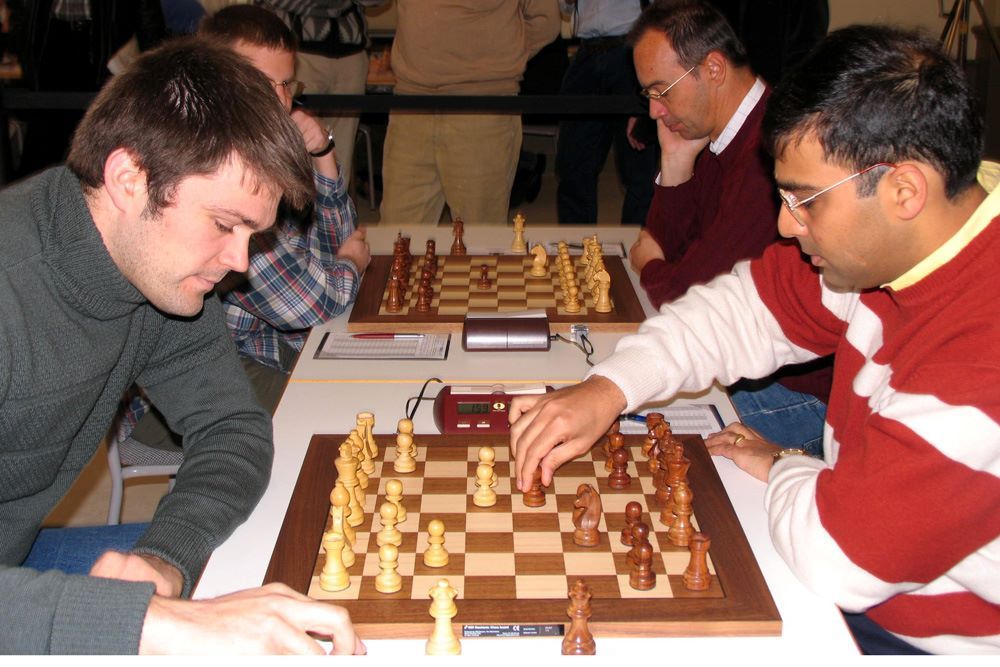
Peter describes the behind-the-scenes scenes explicably in the context, "During a world championship match, when they have to play chess for approximately 7 hours a day, they also need to sleep at night; they need to relax. They need someone they can trust, talk to them for 10-15 minutes, tell them about their vision, and then we work all night, and the next morning we tell them about it. For example, in one such game, Vishy made the general strategy, and then at night, we were having so many problems. We were calling Kasparov, we were calling Kramnik, and we also had Magnus helping, but Vishy was just happily sleeping, and he could trust us that we would go through the process, and in the morning, we told him that everything is under control."
This is basically the work of a team of seconds; they do the back-end work and deliver the input.
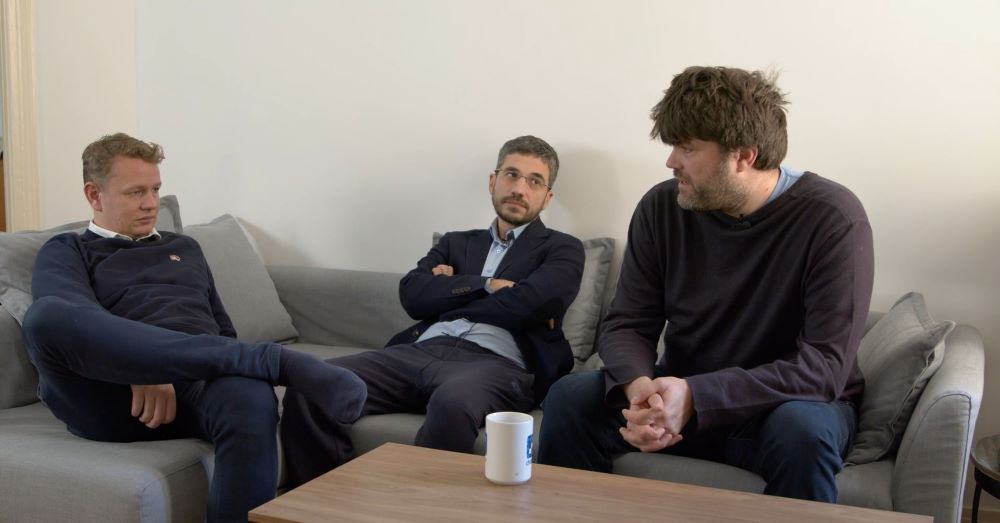
Nevertheless, the times have changed a bit now. Back then, in the time of Vishy let's say, the computers were not very strong, so there was more hard work than now. These days, people do not need to work as hard as they did then because computers have become much stronger and better.
"These days it seems, even with a decent amount of work, we will all get the same result. So nowadays, you will see new skills come into play. For Vishy, openings really mattered; we tried to dominate there, but in the generation of Magnus, or much more in the new generation, they are much more caring about the fighting skills and being dominant."
How exactly does the old generation differ from the new?
With the advent of technology and strong engines, the way people approach chess has changed rapidly. In earlier days, the information that would have required days and months of hard work to achieve is now readily available in a short period of time. While in older times, it was much more difficult to come up with a strategy, that nowadays literally takes minutes, so opening matters less these days.
Peter thinks that the new generation is much fiercer. With the help of modern technology, everybody has access to a lot of information and is basically equal; thus, people are looking for new skills and an edge where they can dominate the other player.
"What Vishy was doing wouldn’t work now, but it worked for him then; you can see the same with Kasparov. He was also dominant, but his approach is kind of out of fashion these days. These geniuses are optimising within their reign, and we try to adopt that into the team. But of course, I can see that some of the younger generations are thinking in a completely different way than we do, and to my surprise, it works."
"It’s not like what Vishy was doing was wrong; that worked brilliantly at that time, and if he had been born now, perhaps he would be doing the same thing as these young players. Everyone was doing what worked best for them at that time. For example, some of Kasparov's openings are perhaps outdated at this time, like the king’s Indian, but It was an incredibly good weapon at that time."
Peter really believes that every generation focuses on something that matters at that time, and that is the reason behind their success. You grow with the changes, and you adapt accordingly to survive for long.
When asked how the younger generation thinks differently, Peter says that the older generation, let’s say Vishy, himself, and even Magnus, were brought up with the classical knowledge of chess. While the new generation is brought up focusing more on online chess. Their classical knowledge is not that deep compared to the older generation, and their way of approaching a game is much more critical. The youth of today have a somewhat less dogmatic approach to it because they were brought up with computers.
Looking back, Peter recalls that in the last world championship when he was working with Magnus, they had a young, talented player, Jordan Van Forest, in their team, and his approach towards chess was so different that people felt as if they were talking different languages. However, the result is the same, even though the two generations come from totally different perspectives.
"Magnus perhaps won in Chennai while working on endgames, and that was usually not how it was done in the times of Vishy or Kramnik. Now you see these youngsters playing perhaps even wilder and aggressively, and sometimes we will think it's like they do not even understand the game well enough, but that is from our perspective because we have this classic knowledge. But maybe it's because our knowledge is not fully correct or is biased by some different principles."
Following the two schools of thought, one of which says that the young generation is so well trained on set patterns that they shy away from taking risks, and the other says that since they are playing so many different formats, their intuitions are building, and they are moving towards the new set of patterns.
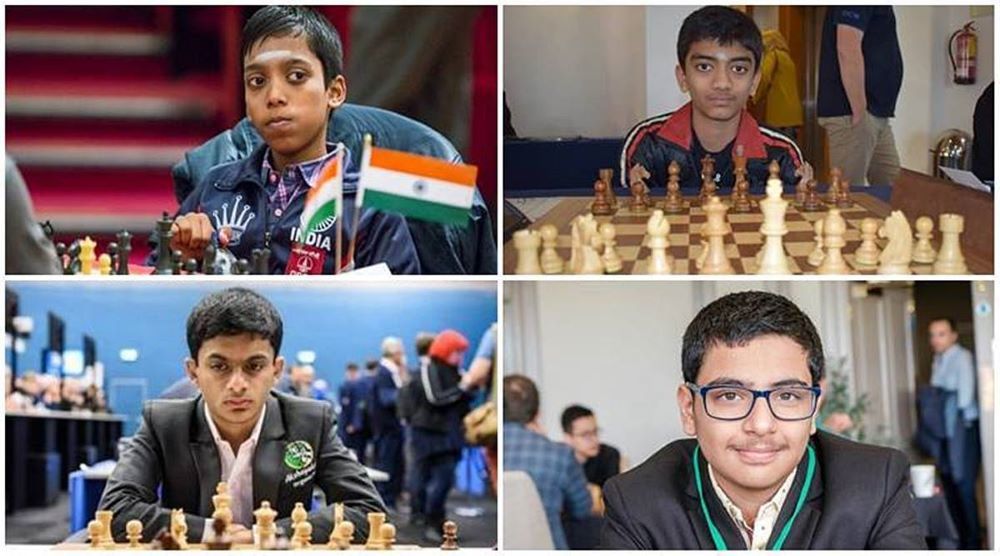
Peter was asked his opinion on the same, and he answered, "I myself believe in the latter one. Of course, you will find people who are not risk-takers. In chess, generally, defensive strategies are stronger than offensive strategies. In chess, in principle, if you defend well, the opponent will not be able to score. You can see the same in some of the top players, like Anish Giri and Wesley So, they play like that, but I feel the young generation is not like that. I see that they are more competitive and practical in a way. If anything, they try very hard to win. Even though I think that is not a very good strategy against someone like Magnus. However, I think it might work in the long term. I think there's such a huge competition among the young generation that if you do not play aggressively, someone else will, and somehow they will go ahead."
"Today, it's all about the players, the people who can keep their heads calm with seconds to play, not necessarily those who care to study openings for a very long time, and that is perfectly okay. That is part of the evolution."
Difference between a Top-Level GM and a potential candidate and World Champion.
One question that often comes to people's minds is what sets a potential candidate apart from a top-level GM and what it takes to bridge that gap.
Peter has some very insignificant opinions on this. He says that what people fail to understand is that it is much easier for a person to bridge the gap between being number 100 in the world and number 30 than bridging the gap between number 30 and number 5 or 1.
"The level difference is just incredible. It might be difficult for others to appreciate, for example, amateur players or hobby players. I mean, I with a 2600 or something rating might seem like a very strong player to someone, and they will not really grasp the difference to 2800".
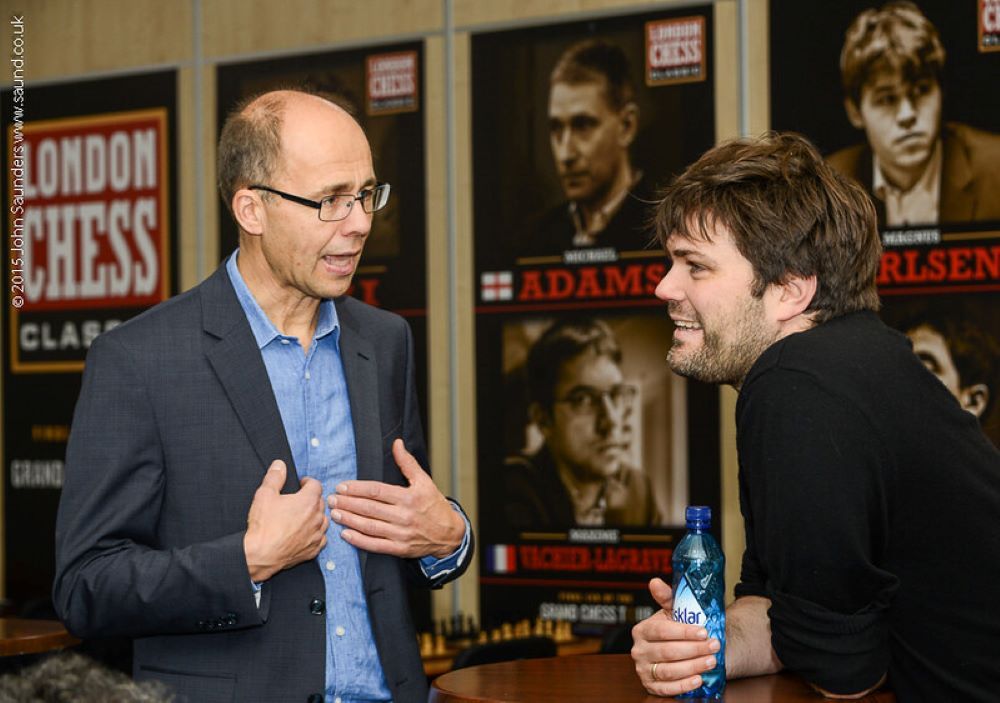
Peter would recall his games with Peter Svidler or his conversations with Kramnik, where he would realise the big gap between his and their knowledge. While he could not only see and analyse until like 15 moves, the other one would have seen a strategy from miles away.
"The speed with which Magnus and Anand analyse is much quicker than mine. Mine might be better than everyone else in Denmark, so it is difficult for others to appreciate the difference, but there's a huge difference there. The difference between numbers 100 and 30 is much smaller than the difference between numbers 30 and 1. People are not able to appreciate the geniuses these people are, and chess is a game where you cannot see it all the time, but when you start talking to these people, you understand the difference."
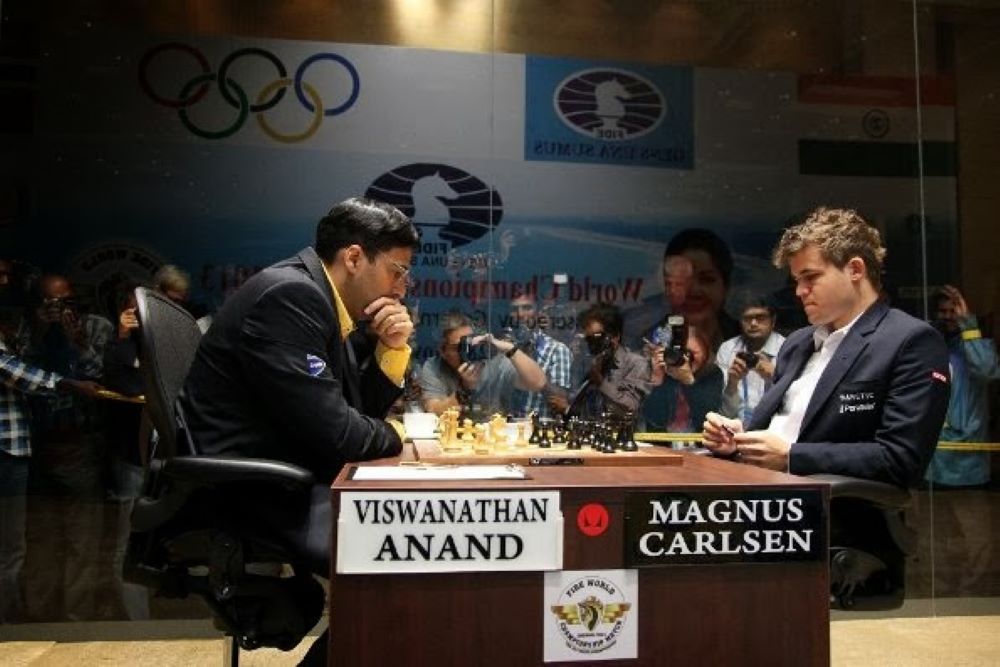
Even if he is in the top 100, it takes an immense amount of work for Peter to have a logical conversation about a game with Magnus or Vishy. He would stay up all night, analyse the game, and memorise the lines so that he could talk to them on a game, while on a 5- to 10-minute walk.
With the help of computers, today everyone can understand a game easily. It is much easier for people to grasp the strategy that earlier would have required a top-level chess player to explain. Therefore, people are not able to appreciate the geniuses these top-level grandmasters are.
"Of course, I am happy that we have a tool that can help common people understand what these players are doing because otherwise, it would be too difficult, but sometimes we forget how difficult it actually is."
When asked if it's more about talent or training and if the percentage of talent keeps increasing at the top level, Peters says he thinks so.
"I think talent has a lot to do with it. I think it's perhaps not enough to have this unique talent, but without it, it's impossible to be the best player for like 10 years, and I don’t think you can train yourself to be that. You can train yourself to be a grandmaster, but to get to this high level, one needs an incredible amount of talent as well."
At the very top level, the game of chess is about a lot of things, such as resilience, the ability to stay calm, dedication, hard work, and so much more, but it's more about humans vs. humans.
However, one thing that trumps it all is to win despite all the difficulties one faces in a game, to get back up after a loss, and to keep working hard even when the times are tough. The thing about chess that makes it so different from the others is that one must internalise their emotions. When asked if that is the reason why chess players take their losses deeply, Peter says yes, the losses feel very deeply in chess.
Whereas in other sports, if one wins, there are celebrations and whatnot, however, it's not so prominent in chess, especially for top grandmasters. With other sports, one usually lets out their emotions in a very physical form; but that’s not the usual case in chess.
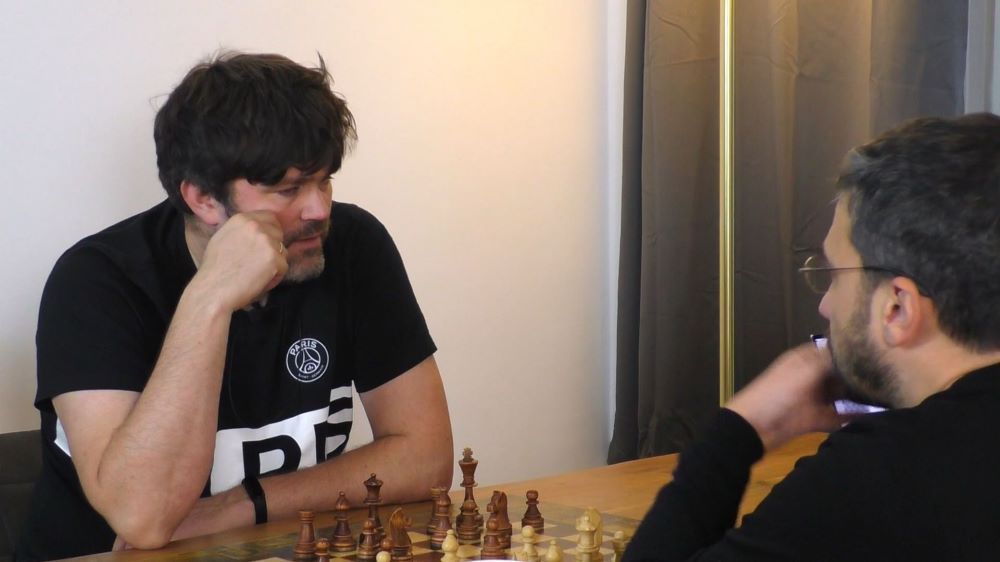
One thing that strikes me here is a quote from the Bhagavad Gita where Krishna says not to take your wins and losses very deeply. To be calm in the extremes of a situation is a feat that only the strongest can pull off, and while that is true in most of the games and aspects of life, it is more prominently visible in the life of a chess player, where you lose a very important game one day and must pick yourself up quickly for the next one. If one spends a lot of time hanging around a particular win or loss in a game, chances are they will suffer throughout the whole tournament.
Not being a physical game, it is hard to get it out in a healthier way. Before, there were not many speculators in the game, but times are changing now, and Peter says perhaps it's all for the good.
On being asked what his thoughts are on the chances of being a future world champion among the young, talented Indian grandmasters, he says, "I guess it's not just assumptions; it's more than solid ground. I have worked with Vishy when he was at his peak and somewhat with Magnus as well. I don’t have much expertise as to how a young talent develops, and it's hard to say, but you can look at their ratings and make some kind of estimate. What strikes me is that there are so many talents from the same country. The core of Indian chess is brilliant. I think this internal competition is useful and should not be seen as a problem. Because experience and theory have shown that having any type of competition is extremely motivating, there’s so much talent that it cannot become stagnant."just a
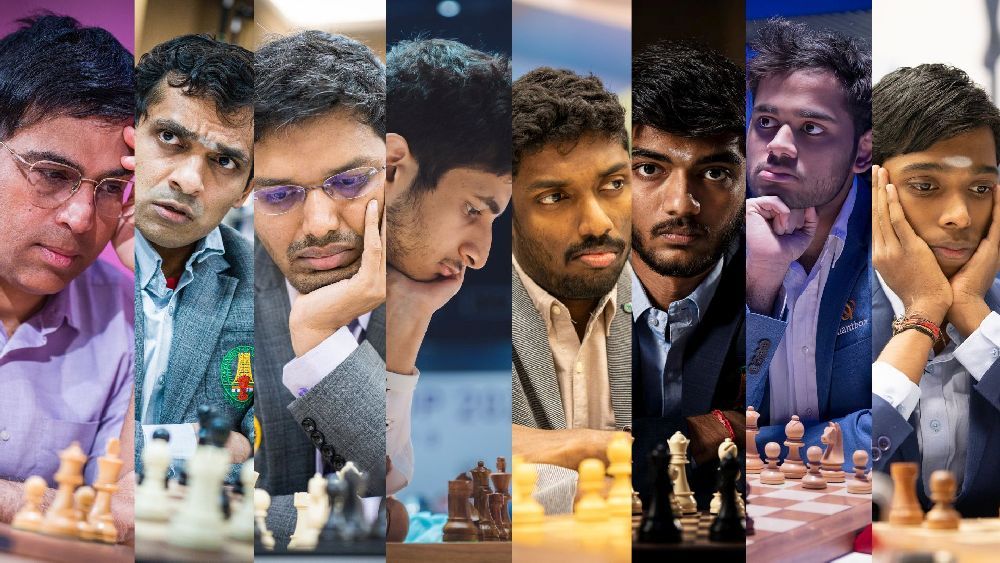
Again, when you look at Magnus or Vishy, their drive was not just about winning; there was a passion for the game. If you only want to win, that's not enough; you must go beyond that, and it's obvious that they have that spirit along with the competition. The thing that stands out to me is that they are not afraid to lose. They all seem to be playing foolishly to beat Magnus, and I think that’s not a very good strategy if you are trying to optimise your chance. I don’t think they are at that level yet, but I really like it in terms of process. They are not afraid of Magnus; I don’t fully understand why, but you saw the same thing with Magnus when he was young. With so many young talents from the same country, it is scary, but in a good way."
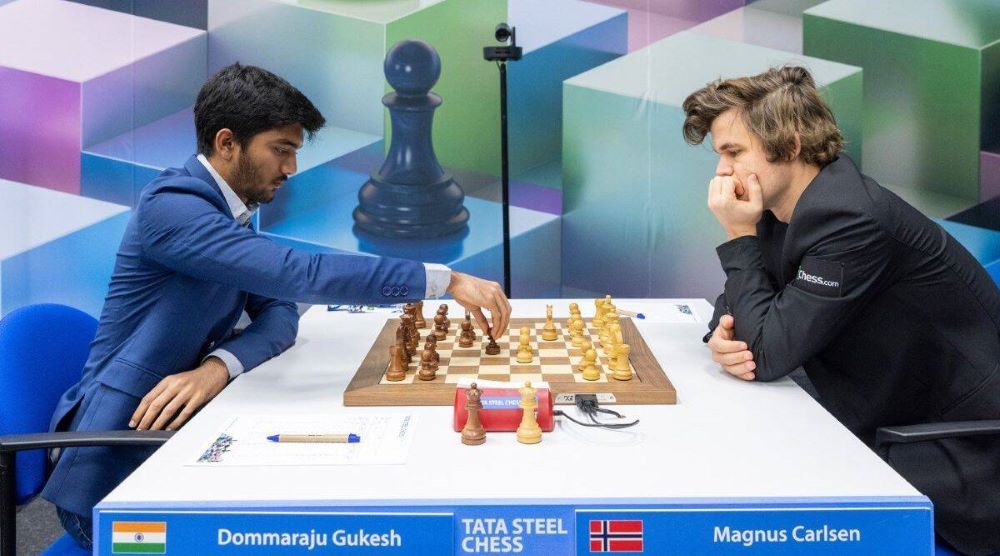
Well, what the future holds for chess and Indian grandmasters is something that only time will tell, but it is said that change is the only constant, and therefore, whatever way it is going, it is good for the game and the masses.




